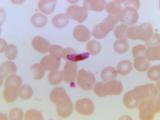May 10, 2013
Flu markers show more signs of decline
US flu activity continued its retreat toward typical summertime levels, according to an update today from the Centers for Disease Control and Prevention (CDC). The percentage of outpatient visits for flulike illness dropped to 0.9%, well below the national baseline of 2.2%. Of the 4.1% of respiratory samples that tested positive for flu, 67.2% were influenza B. Only one pediatric flu death was reported, that of a patient who died in early February, raising the total so far this season to 138. Overall deaths from pneumonia and flu rose slightly last week, to 7.0%, but the level is still below the epidemic threshold. In Europe, flu activity continues to drop or has declined to baseline levels in all reporting countries, the European Centre for Disease Prevention and Control (ECDC) said in its biweekly update yesterday. The overall percentage of swabs testing positive for flu continued its decrease, to 8%, and 53% of specimens tested were influenza B. Among influenza A specimens, 62% were the 2009 H1N1 virus, according to the ECDC.
May 10 CDC update
May 9 ECDC update
Trial suggests new anthrax vaccine more immunogenic than current one after 2 doses
A phase 1 trial of a candidate anthrax vaccine, called AV7909, shows it was more immunogenic after two doses than BioThrax, the current vaccine, according to a study in Vaccine today. The study compared the safety and immune response of two injections of four different formulations of the experimental AV7909 vaccine with two doses of BioThrax (Anthrax Vaccine Adsorbed [AVA]), both of which are made by Emergent BioSolutions of Rockville, Md. AV7909 consists of AVA plus an immune-boosting adjuvant called CPG 7909. A total of 105 healthy adults ages 50 and younger received either BioThrax, a saline injection, or AV7909 at various levels of AVA and CPG 7909. One hundred completed the study. After two doses, mean peak toxin-neutralizing antibody responses in the AV7909 groups were higher than in the BioThrax group, and differences among the four AV7909 groups were not statistically significant. Volunteers who received AV7909 reached peak titers on day 28 post-injection, versus day 35 in the BioThrax group. No major safety problems were noted in any group. "Further studies of doses and dosing regimens are planned to assess the immunogenicity and reactogenicity of AV7909," the authors concluded. In 2008, the National Institutes of Health (NIH) awarded Emergent $29.7 million to develop AV7909.
May 10 Vaccine abstract
Sep 12, 2008, Emergent news release on the NIH contract
Scientists breed generations of malaria-immune mosquitoes
Scientists have for the first time successfully introduced a stable bacterial infection in laboratory mosquitoes that renders them immune to malaria parasites. In a study today in Science, the researchers report that they were able to instill inheritable Wolbachia infection, which suppresses reproduction of Plasmodium parasites within the insects, in Aedes stephensi mosquitoes, the primary carriers of malaria in the Middle East and South Asia. In the study, funded by the National Institute of Allergy and Infectious Diseases (NIAID), the wAlbB strain of Wolbachia was injected into male and female A stephensi embryos. The mature females were allowed to mate with uninfected males. Maternal transmission was found to be 100%, and a stable Wolbachia infection rate was maintained for 34 generations of the insects. To assess the ability of the infection to invade natural uninfected mosquitoes, the authors tested three populations in which Wolbachia-infected females accounted for 5%, 10%, and 20% of the insects. Within eight generations, 100% of the mosquitoes in all three populations were infected. The researchers found that the bacteria kill the Plasmodium parasites in both the mosquito midgut, where the parasites mature, and in the salivary glands, where the mosquitoes transmit the parasite to humans through bites. Wolbachia-infected mosquitoes have been used successfully in some settings to control dengue.
May 10 Science abstract
May 9 NIAID press release


















